Child development and family education through the Double Reduction policy
– A psychological lecture for parents of primary school students
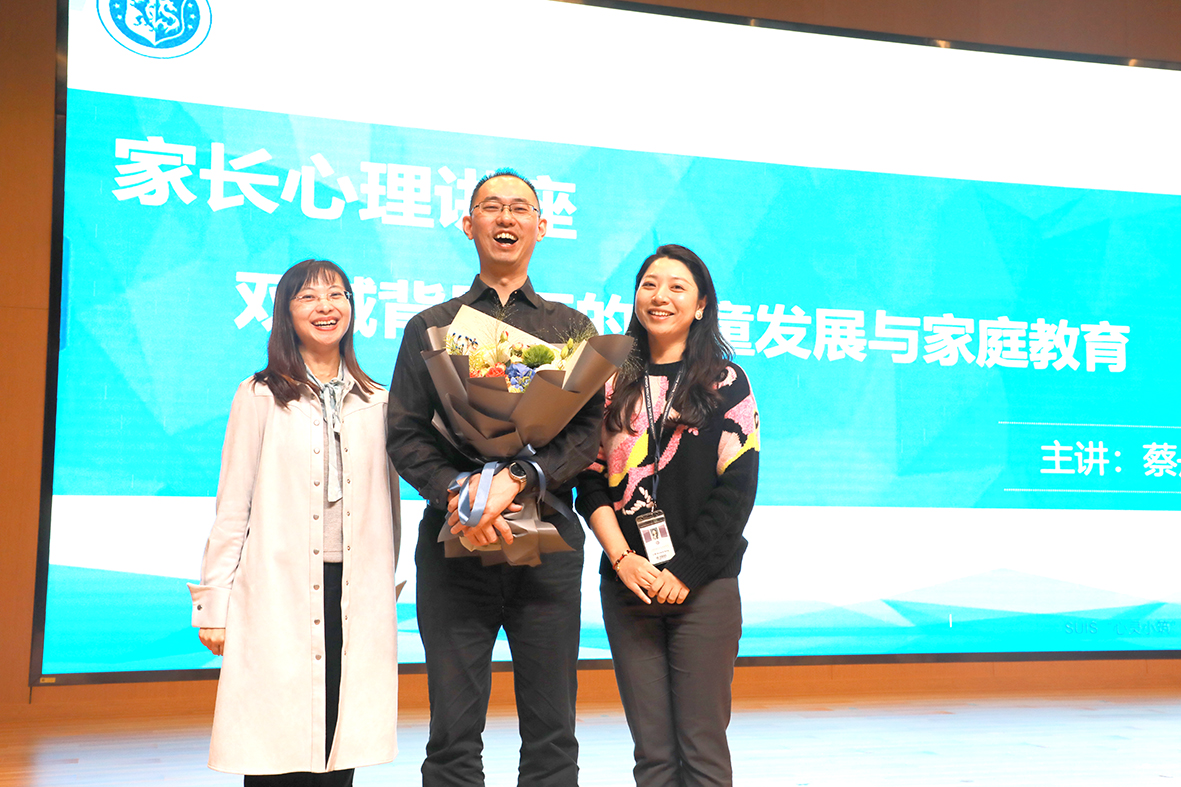
After the implementation of the “Double Reduction” policy, some parents seem happy, while others are concerned.
The ‘reduction’ makes children happier, but it also makes some parents anxious.
Parents worry that the policy will have a serious impact on their child’s studies and future education.
Parents worry that they won’t have the time or ability to help their children without the extra lessons outside of school hours.
Parents are also concerned about the potential for new conflicts between parents and children.
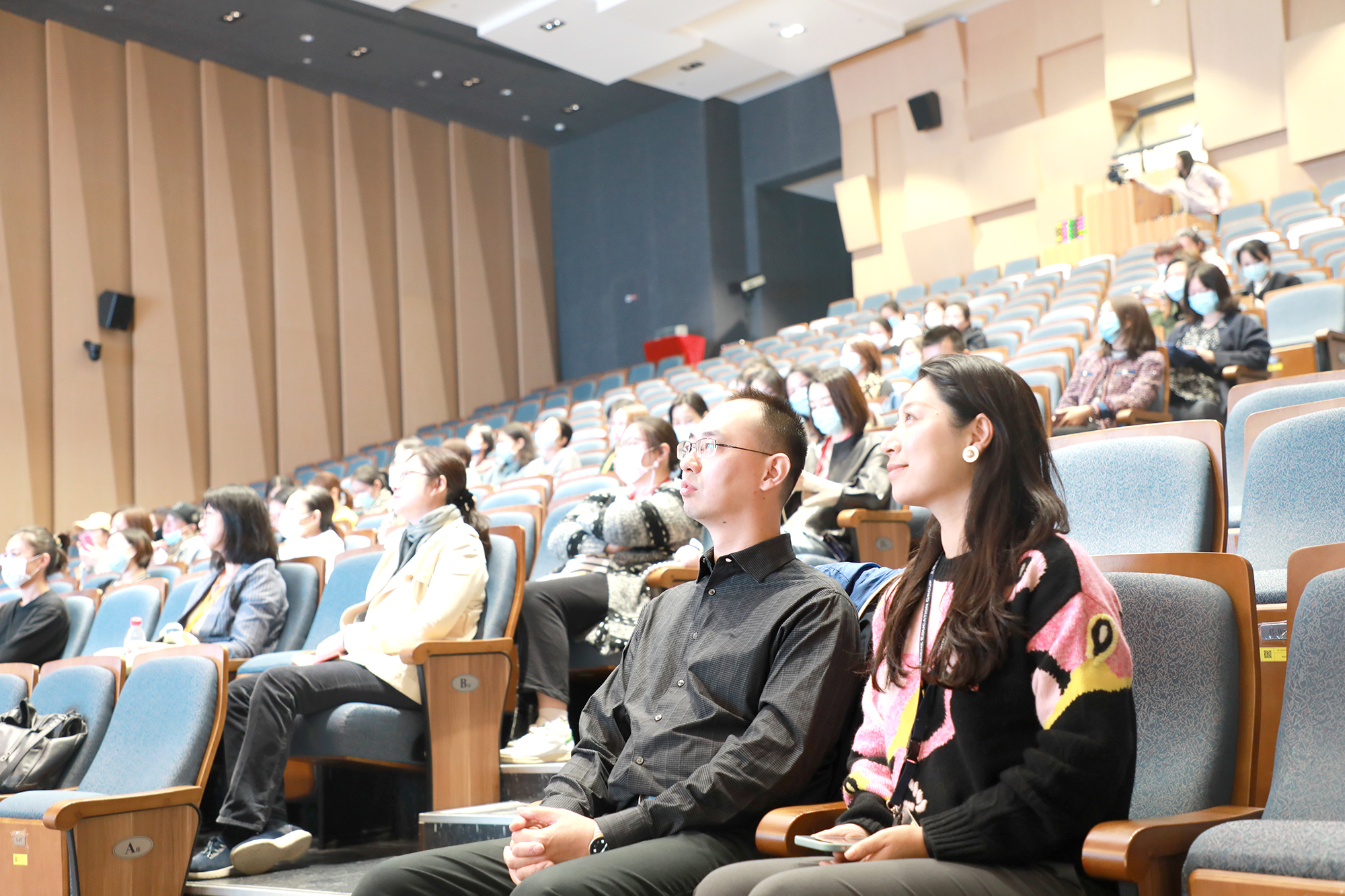
So, how can we properly adjust our thinking in order to help children balance happiness and the pressures of learning? Research on children’s psychological development characteristics and their cognitive development levels suggests that we should focus on helping children by better stimulating their learning and by enhancing both their sense of achievement and learning efficacy.
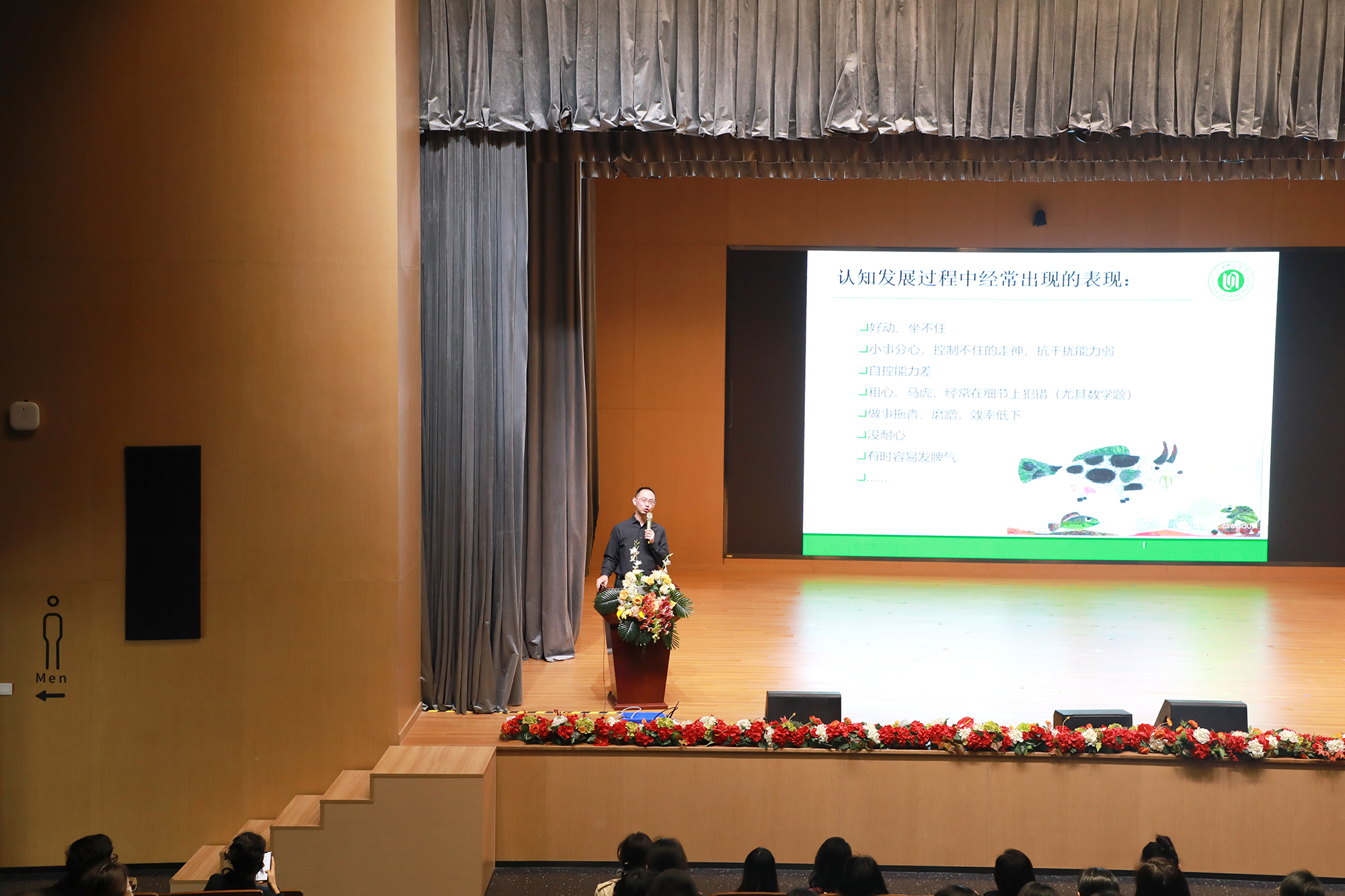
On October 22, 2021, SUIS Qingpu invited Professor Cai (China Psychological Association) to the campus to provide a psychological lecture to parents. Professor Cai currently holds a number of important positions: Deputy Director of Youth Work; Standing Director of the Shanghai Institute of Mental Health; the Psychological Association’s Deputy Secretary-General of Shanghai; and Executive Director of Shanghai Normal University’s Family and Child Development Research Center. His lecture was entitled, “Child development and family education in line with the Double Reduction policy”.
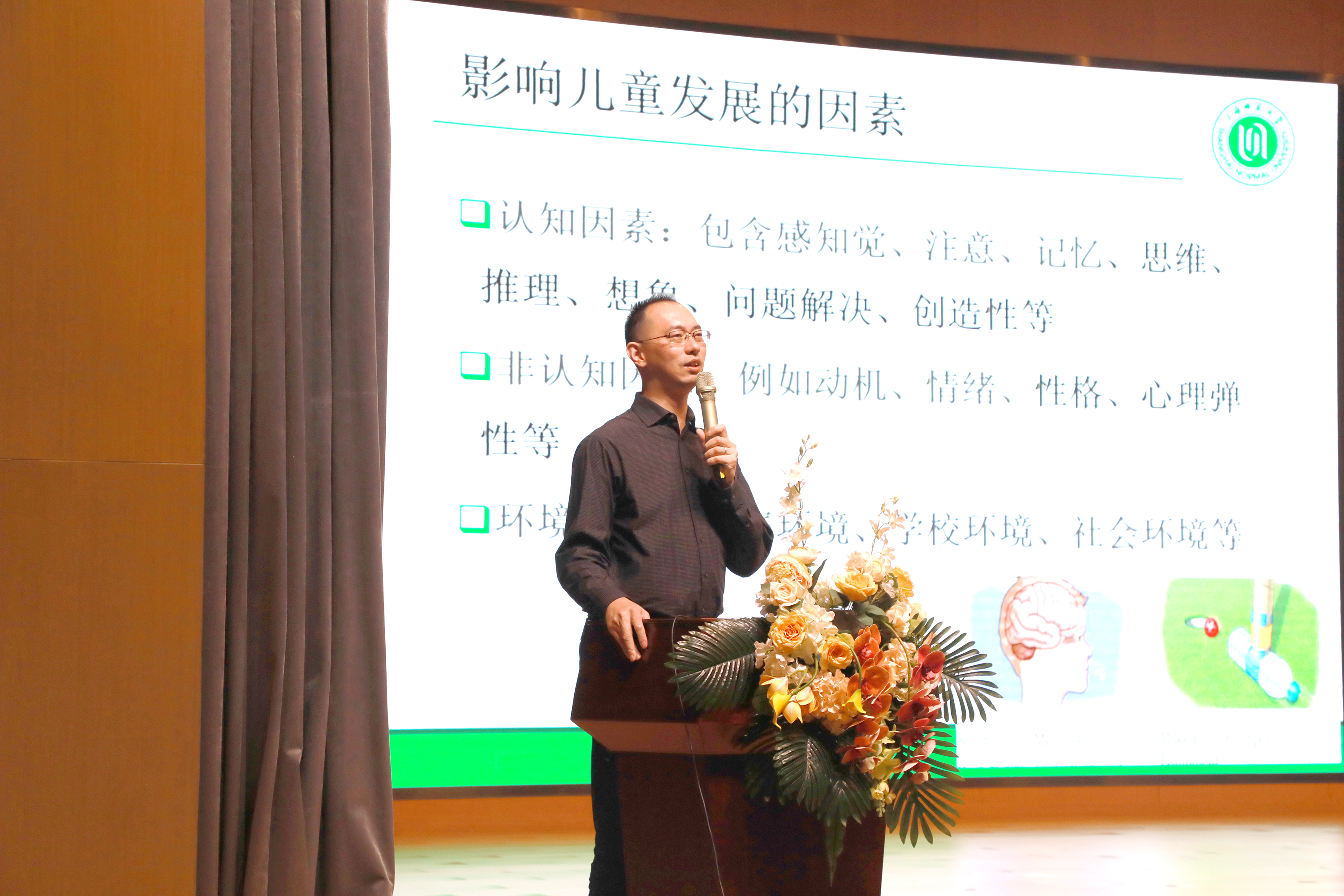
Professor Cai first provided an analysis of the details of the policy in the context of the cognitive development of primary school students, easing concerns of the parents. His purpose was to help parents understand that ‘double reduction’ is ultimately aimed to promote children’s sleep, increase outdoor sports time, increase reading time, reduce pressure, and promote children’s cognitive and positive psychological development. We must understand that a better future for children involves a closer relationship between their physical and mental health, establishing a complete personality, increasing their positive motivation, and maintaining a healthy parent-child relationship.
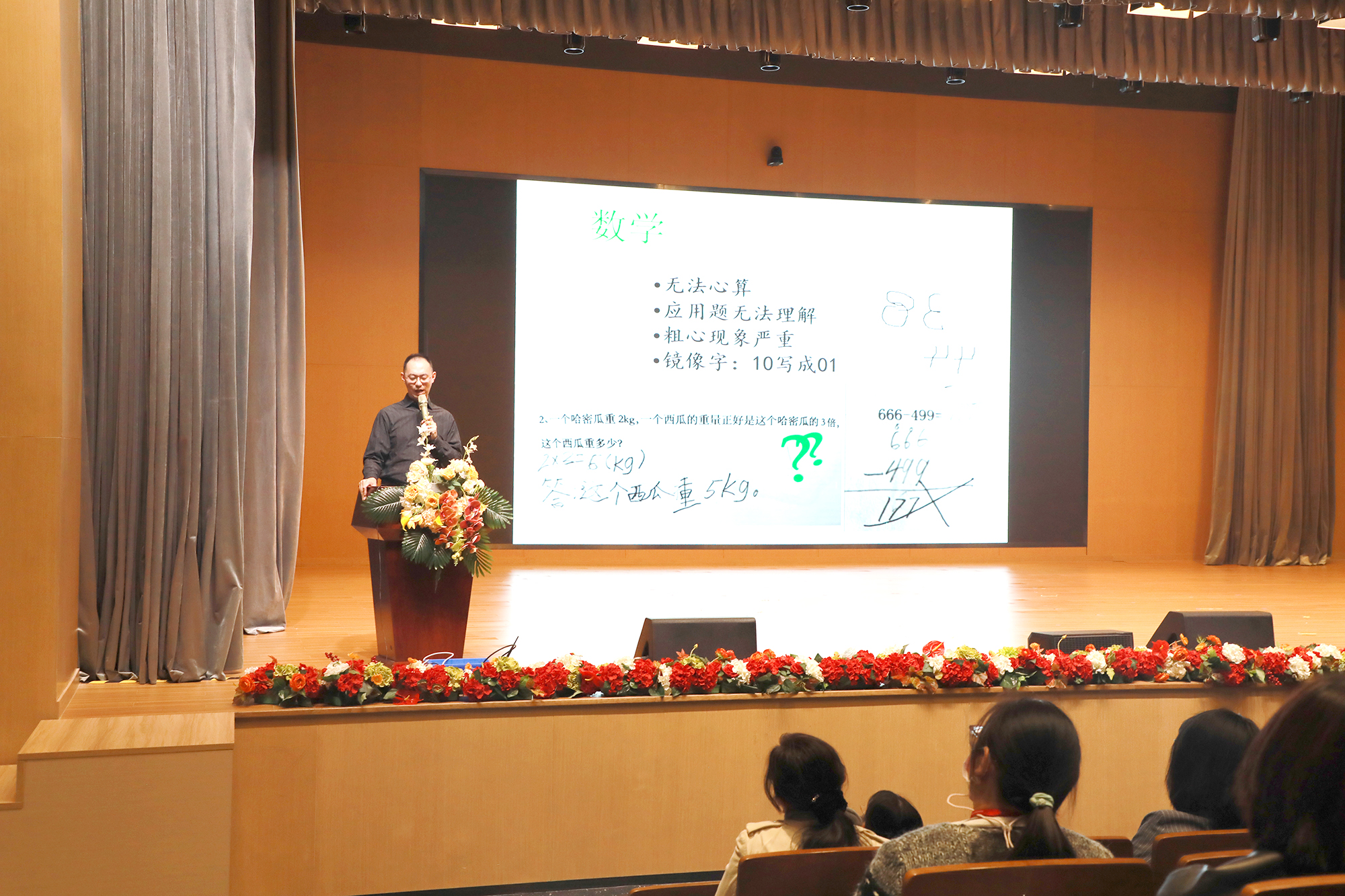
Professor Cai then provided a wealth of real-world examples, revealing for parents that in addition to school education, family education is also crucial for young students, and the family environment is the source of the motivation needed for promoting children’s better development in the future. Parents learned how to teach and learn at home:
- Parents should be good role models for their children, accompanying their children as they engage in beneficial parent-child activities and promoting their learning ability.
- Parents should pay attention to cultivating children’s positive life habits and creating a low-stress learning atmosphere for their children.
- Parents need to respect their children’s brain development and learning rhythm, and provide positive help, support, and guidance when their children encounter difficulties.
- Parents should not pay too much attention to their children’s academic performance but pay more attention to their learning process and enhance their interest in learning.
- Through sports, parent-child activities and games, parents can strengthen many characteristics and abilities in their children: visual perception; visual attention; visual memory ability and auditory perception; auditory attention; and auditory memory (retelling and reciting memory).
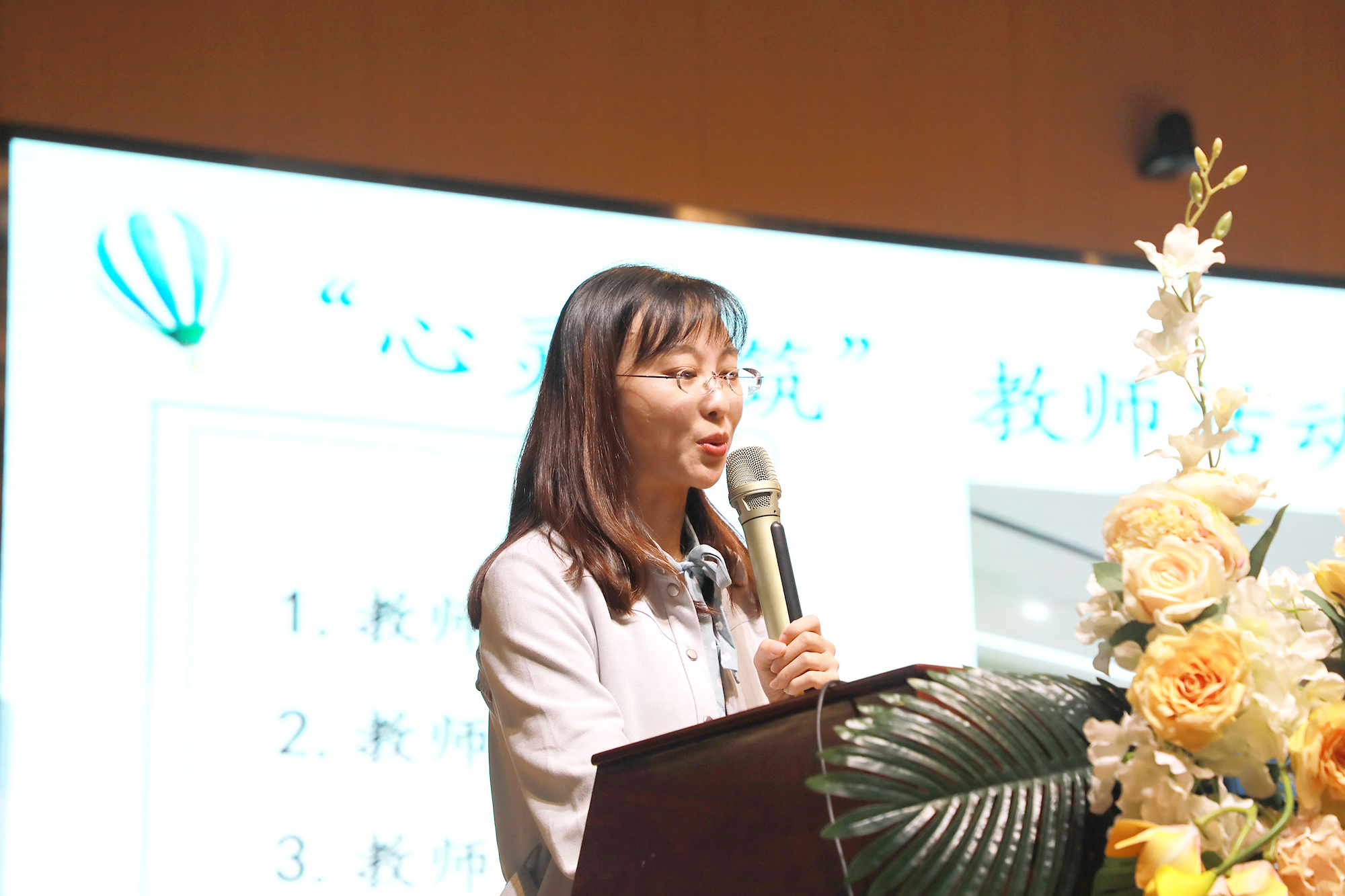
During the lecture, parents sometimes nodded, sometimes took notes, and sometimes applauded. They all communicated that the lecture was fruitful:
Some parents commented that they believe “a child’s motivation is more important than his or her academic performance.”
Some parents said that “the main way for primary school students to learn is to use contextual and specific content.”
Several parents added that “learning is not just the number of languages one can learn – it involves developing a common sense of life, where Heaven and Earth are learning content. Reading, visiting, and discussing are all ways of learning.”
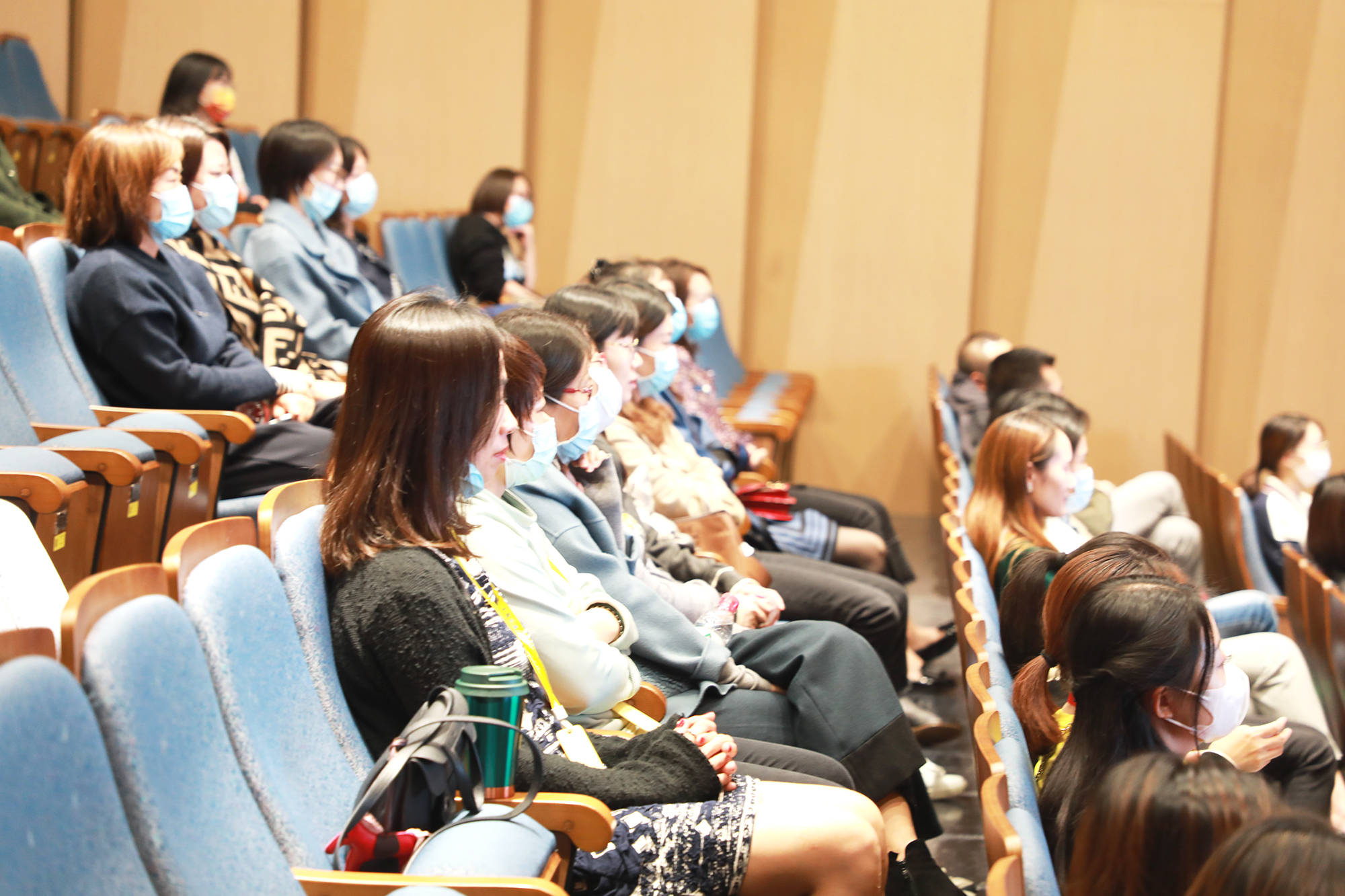
Some parents said, “That’s right! When a child feels fulfilled in learning, he is indeed more engaged and more willing to explore more.”
Finally, some parents commented that they “did not expect that family education had such an important impact on children…we will prepare more parent-child activities to train our child’s audio-visual perception!”
SUIS Qingpu’s Psychological Counseling Center will continue to conduct a regular series of child psychology lectures. We encourage you to scan the following QR code and provide your suggestions. We will provide you with relevant psychological lectures based on your valued feedback.

We hope we can work together to help our students grow up healthily and happily!


